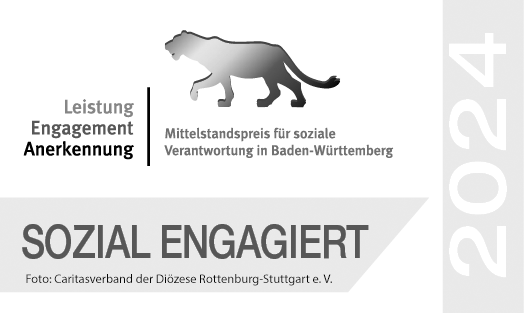Perspectives
You are here: Programs & Courses » Master's Programs » Mannheim Master in Sustainability & Impact Management (Part-Time/Blended) » Perspectives
What Participants and Experts Have to Say
Business and academic experts concur with the concept of the Mannheim Master in Sustainability and Impact Management. Learn more about their assessment of the demand for Sustainable Impact Management and our specialized master's program.
Perspectives
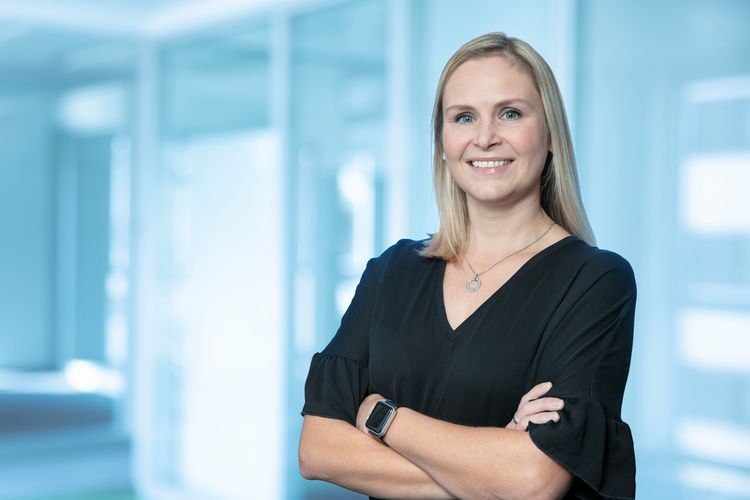
Nicola Gesing, Senior Manager Sustainability, Bilfinger SE"The sustainability paradigm is changing the value creation logic for corporates. The curriculum of the Master in Sustainability and Impact Management helps managers meet stakeholder expectations in this changing environment. In order to continue making informed decisions, managers need to review and adapt business routines. The program offers good examples of additional perspectives and toolkits to acquire and develop the necessary skills."
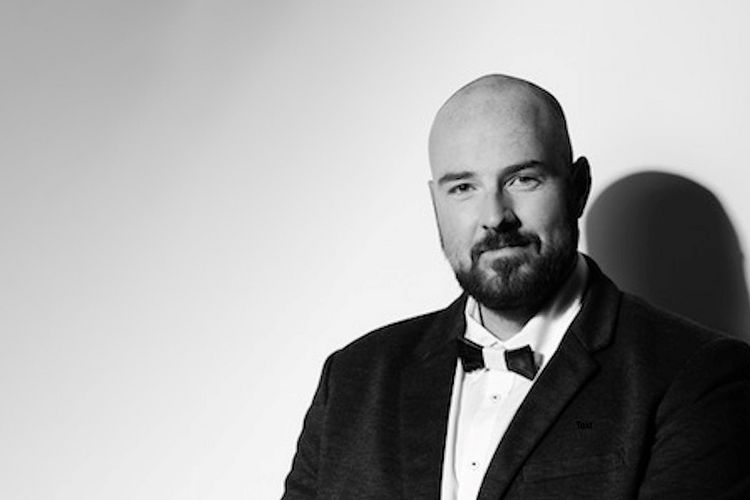
Mike Richter, Participant MSIM 2023"My personal highlight so far surely was the introduction week. I had just arrived from Australia a few days earlier and was still trying to adapt to the European environment. On the first day, everybody had the chance to introduce themselves and listen to experienced business professionals discussing pressing topics like the EU taxonomy and European Green Deal. Due to the subsequent photoshoot, all students showed up in business attire. The group dynamic was just incredible, especially considering we are simultaneously coping with a pandemic. Apart from that, the first impression of the learning environment was really impressive: the latest technology combined with the historic castle architecture creates a very special feeling. The first courses related directly to some of my core questions about sustainability and created a high level of attention and commitment."
Read more
Why did you decide to do the MSIM? Why did you choose Mannheim Business School? What makes ESG topics and the MSIM special for you?
Ever since I finalized my bachelor’s degree in Management and Business Administration, it has always been a mystery to me how businesses can act as if there are endless resources. During the first years of my career, I mainly worked in sales management and business development, and consistently questioned the status quo of “profit maximization only”. Environmental and social issues did not really get the attention I would have expected. Going further, I worked for different industries and international teams. I experienced how valuable a diverse team can be. I practically learned how to restructure a department and overcome resilience to change. Also, during career breaks, one of which involved traveling across Australia, I connected with many people having innovative ideas and limited resources to enable the desired change. In effect, I developed a desire to understand sustainability in the most scientific way possible. For me it is about gaining the required knowledge and skills to have as profound an impact as possible at a professional level. Climate change and resource overuse are core issues for every human being. It should therefore be a priority of all businesses to tackle these problems in addition to maximizing their profit.
After screening a number of options internationally, I decided to join Mannheim Business School for many reasons.
Internationality
Although I spent three years in English-speaking countries, I still wanted to do my master’s in Germany AND 100% in English to be prepared for an international role. The international atmosphere brings various different perspectives and a vibrant discussion, both in the classroom and outside. Networking seems to be flawless due to the amazing level of common sense surrounding sustainability topics. Due to the small groups and high levels of interaction, time seems to fly.
Program quality and curriculum
Several university rankings list Mannheim Business School amongst the best nationally and internationally, which served as a good indicator for my decision. While finalizing my research on potential programs, I matched my desired career focus and the content of the program. As a generalist, I was interested in a broad range of relevant topics, which I found Mannheim Business School covered. Furthermore, as one of the challenges of a part-time program, I wanted to make sure that the amount of time spent would correlate well with the outcome. The blended learning format was therefore really attractive. The in-person and online courses provided the perfect combination to constantly keep me working on a topic. Professors with practical backgrounds do not only give valuable insights to their current real-life challenges, but also connect those issues to the latest research and studies. It creates an environment of getting something done together, having an impact from the word go.
Personal development
Personally, I have already noticed a shift in my way of thinking. New approaches to defining sustainability and the ability to answer colleagues and friends’ important questions in a more detailed and factual manner are just two changes I already perceive. Additionally, the way I think about business and personal challenges is becoming more structured and targeted. It also feels very rewarding to work on pressing issues with a group of very talented and smart people. I spend more time reflecting on my results since starting the program. I think it helps me to become more professional in my job and also supports my personal development.
What impact has the MSIM had on your career? How do the tools and know-how you got help you in your daily work? What is your experience of blended learning so far?
After finalizing my bachelor’s degree, I worked in various industries and roles. In effect, I strive to incorporate that knowledge and structure it. After just four months, the master’s program already helped me find my desired position. Networking and including freshly learned information in job interviews contributed to this. I recently started as Business Development Manager at a start-up involved in biochar production, with the huge potential of reducing carbon dioxide emissions in four sectors: the agriculture, energy, building, and chemical sectors. This role will also contribute to sustainability communication and reporting. Thanks to the program, I know where to start and how to approach sustainability-related business problems.
What are some significant experiences that you took away with you from the program? What was your personal highlight?
My personal highlight so far surely was the introduction week. I had just arrived from Australia a few days earlier and was still trying to adapt to the European environment. On the first day, everybody had the chance to introduce themselves and listen to experienced business professionals discussing pressing topics like the EU taxonomy and European Green Deal. Due to the subsequent photoshoot, all students showed up in business attire. The group dynamic was just incredible, especially considering we are simultaneously coping with a pandemic. Apart from that, the first impression of the learning environment was really impressive: the latest technology combined with the historic castle architecture creates a very special feeling. The first courses related directly to some of my core questions about sustainability and created a high level of attention and commitment.
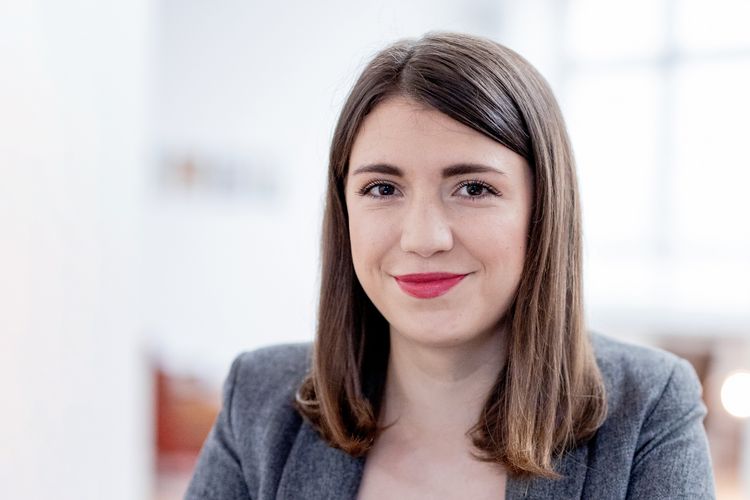
Theresa Adelmann, Participant MSIM 2023"I have the feeling that what I am learning is for life at large, and not merely for a specific job. Right now, there are not enough people with an academic background in sustainability in business, so the program is very future-oriented. Most of all, the blended learning is great. It gives me the needed flexibility next to my full-time job, I am able to study from all over the world, it is a great mix between online and in-person learning, and it includes diverse study methods such as presentations, interactive discussions, peer learning, and written reports."
Read more
Why did you decide to do the MSIM? Why did you choose Mannheim Business School? What makes ESG topics and the MSIM special for you?
A central factor in my decision to undertake the Mannheim Master in Sustainability and Impact Management is my personal interest in sustainability. It enables me to combine my job in the field of sustainability with an academic background. What makes the MSIM particularly interesting for me is that I want to learn how to measure impact: Everyone tries to do good these days, but how can ESG be measured? Mannheim Business School is one of the top business schools in Germany and Europe due to the great mix of professors with extensive practical and academic experience, which is another reason to join the program. On top of that, the diversity of the class is a big pro at all levels – internationality, age, and the many different backgrounds. Different perspectives lead to great and interesting discussions! Similarly, I like that all relevant business administration topics are approached from the perspective of sustainability, giving me unique and new points of view!
What impact has the MSIM had on your career? How do the tools and know-how you got help you in your daily work? What is your experience of blended learning so far?
So far, I have been able to directly transfer the knowledge learned to my work life, which also benefits my employer. The program also has a positive impact on my private life since I am learning how I and the people around me can become more sustainable. I have the feeling that what I am learning is for life at large, and not merely for a specific job. Right now, there are not enough people with an academic background in sustainability in business, so the program is very future-oriented. Most of all, the blended learning is great. It gives me the needed flexibility next to my full-time job, I am able to study from all over the world, it is a great mix between online and in-person learning, and it includes diverse study methods such as presentations, interactive discussions, peer learning, and written reports.
What are some significant experiences that you took away with you from the program? What was your personal highlight?
I realized rather quickly that the MSIM is not only a master’s but also comes with a community, which connects. We share the same interest and engagement in matters related to sustainability. I am impressed with the administration: everything is very well organized and cared for. My personal highlight so far has to be the in-person introduction week!
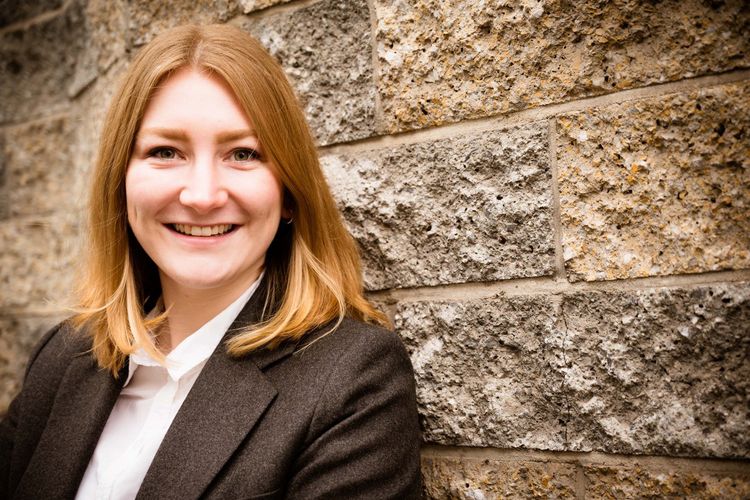
Michelle Sommer, Participant MSIM 2023"The Master in Sustainability and Impact Management (MSIM) has a lot to offer, but the most important aspect for me is that the program doesn’t take sustainability out of context but rather focuses on the management of sustainability in all areas of a company’s operations. Integrating environmental, social, and governance topics proactively in management decision-making along the whole value chain is becoming more crucial and the program provides a lot of answers to the question: “How?” By that, the MSIM overlaps with my personal vision for companies in the future and with my perception of how to implement this vision realistically."
Read more
Why did you decide to do the MSIM? Why did you choose Mannheim Business School? What makes ESG topics and the MSIM special for you?
I started in sustainability management entirely by accident: I had just finished my trainee program and was searching internally for an entry-level career opportunity. Our sustainability management had a vacancy, so I applied and I got the job, realizing very soon that this is what I want to do in my career. But I also became aware that my technical knowledge was limited and that I needed to step up the game if I wanted to start a professional career in sustainability management. That’s why I came up with the idea to search for a suitable part-time program.
The Master in Sustainability and Impact Management (MSIM) has a lot to offer, but the most important aspect for me is that the program doesn’t take sustainability out of context but rather focuses on the management of sustainability in all areas of a company’s operations. Integrating environmental, social, and governance topics proactively in management decision-making along the whole value chain is becoming more crucial and the program provides a lot of answers to the question: “How?” By that, the MSIM overlaps with my personal vision for companies in the future and with my perception of how to implement this vision realistically.
For me, Mannheim Business School (MBS) was the right choice for a part-time master’s program because the MSIM is very practice oriented while teaching essential theoretical basics, and offers a variety of dimensions where one can contribute with his or her personal skills. I’ve already completed a master’s degree but it is important to me to pursue a more practical approach to sustainability, both for my current role and for future job opportunities. Although the program is new, the MBS, due to its international reputation, was able to mobilize well-known representatives from theory and practice as lecturers, introducing its students to many role models in the field of sustainability management.
What impact has the MSIM had on your career? How do the tools and know-how you got help you in your daily work? What is your experience of blended learning so far?
Due to the practical approach of the program, the MSIM is enormously useful for my current role and daily work. In the lectures, we can bring up real-life examples and hence address issues that we are currently facing in our jobs and discuss them openly with our lecturers as experts and with our fellow students. This exchange is not only helpful for the student that raised the issue, but for all students, learning new approaches and benefitting by applying the tools and methods learned in collaboration.
The program includes a blended learning structure, which means that some lectures take place on campus and some online. But both approaches consider collaboration and practice-based learning equally. Blended learning creates a great balance, giving me the flexibility to learn from anywhere. This minimizes complexity and makes work, studies, and private life more manageable for me.
I am convinced that the MSIM will have a positive impact on my career. First of all, the quality of teaching at the University of Mannheim and its business school is highly regarded by employers, as they know about the university’s excellence. And secondly, I as a student have various opportunities to engage not only with my peers but also with Mannheim alumni and company representatives in workshops and other events, making it easier to develop an international network.
What are some significant experiences that you took away with you from the program? What was your personal highlight?
Even though the program started only four months ago, I can say that I am still happy that I made the decision to start the MSIM since I am able to learn a lot in a multifaceted studying environment. My personal highlight so far was the program’s kickoff week, as I got to know my fellow students and we’ve already developed a strong sense of togetherness. Additionally, on the first day of the kickoff week, we had the opportunity to listen to various keynotes, among others that of Saori Dubourg (member of the board of executive directors of BASF SE), who is an impressive female role model. Her speech was inspiring, reaffirming my decision to pursue a career in sustainability management. It was a great honor to exchange perspectives of current developments and challenges with her.
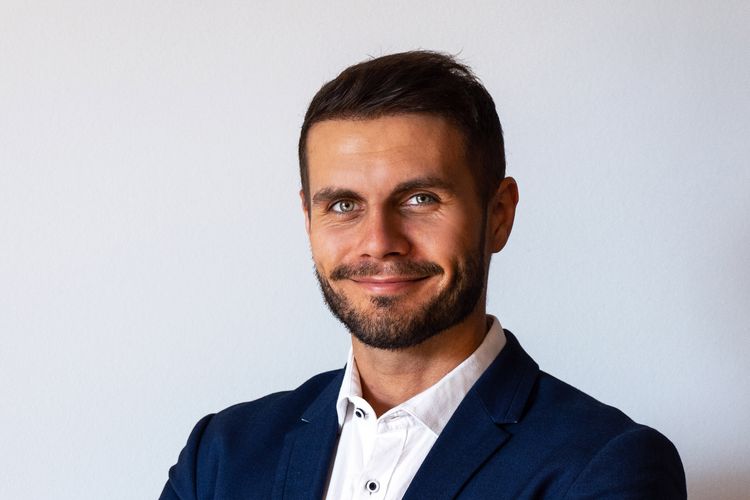
David Lewicki, Participant MSIM 2023"I chose the Mannheim Master in Impact and Sustainability Management program because it provides the critical expertise and skills to address the climate crisis. These tools represent the opportunity to transform our current way of doing business into a socially, environmentally, and economically sustainable system. MBS was my first choice in this regard because of its international reputation for knowing the current state of affairs, for driving personal development, and also for its excellent teaching methods."
Read more
What impact has the MSIM had on your career? How do the tools and know-how you got help you in your daily work? What is your experience of blended learning so far?
Through the program, I am able to look at the sustainable aspects of the company where I currently work. It is an opportunity for me to look at familiar circumstances from a different, more sustainable perspective. Specifically, the insights of my fellow students also give me a broader picture of the issue of sustainability and, through working on case studies together, we learn to approach problems collaboratively and in a differentiated way.
What are some significant experiences that you took away with you from the program? What was your personal highlight?
Personally, I find the practical nature of the program very important: theory learned in the program is put into action through case studies. This allows a quick response to the daily challenges that future managers will face.
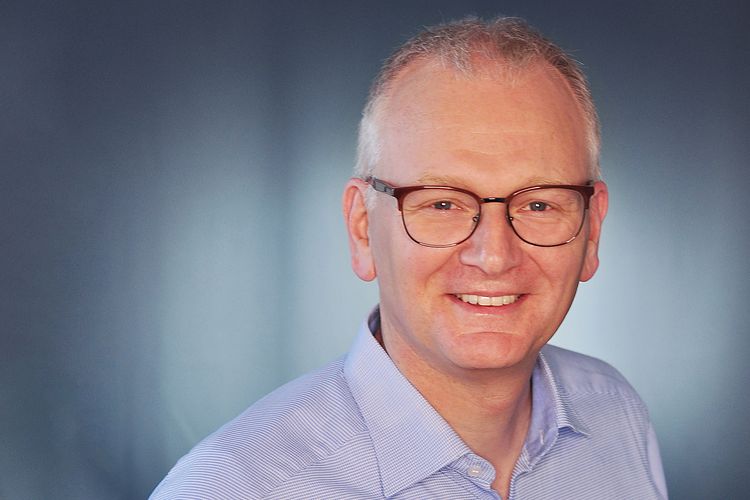
Michael Alberg-Seberich, author, The Corporate Social Mind, and Managing Partner, Wider Sense GmbH"Sustainability includes companies’ societal engagement in the forms of corporate philanthropy, corporate citizenship and corporate activism. These activities express corporate purpose and will be a USP for companies, their brands, and their products and services. It is crucial to manage these with care and boldness, based on theory and practice."
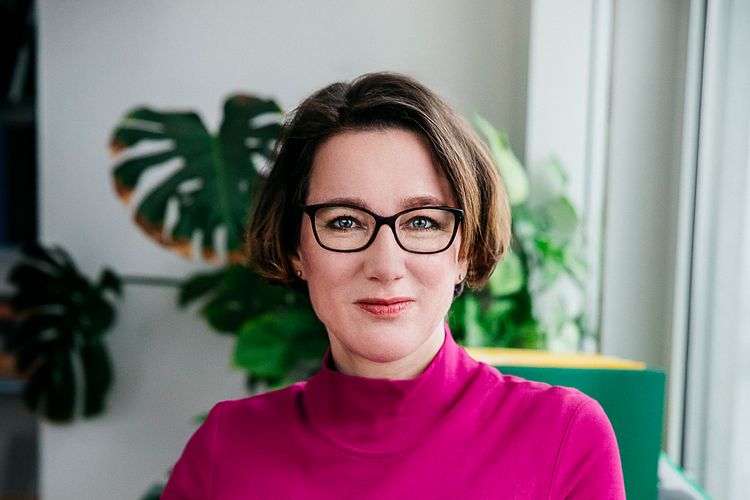
Yvonne Zwick, Chair of the Board, B.A.U.M. e.V. – Network for Sustainable Business"We need incredibly more competence in sustainable management at all levels, in all areas. The Mannheim Master in Sustainability and Impact Management makes an important contribution to broadening the best knowledge about sustainable management and bringing it directly into operational practice at the places where the master’s program participants are employed. In this way, the program has a direct impact on companies, which, in turn, integrate the acquired sustainability knowledge immediately. For this, bravo! This is precisely what we need!"
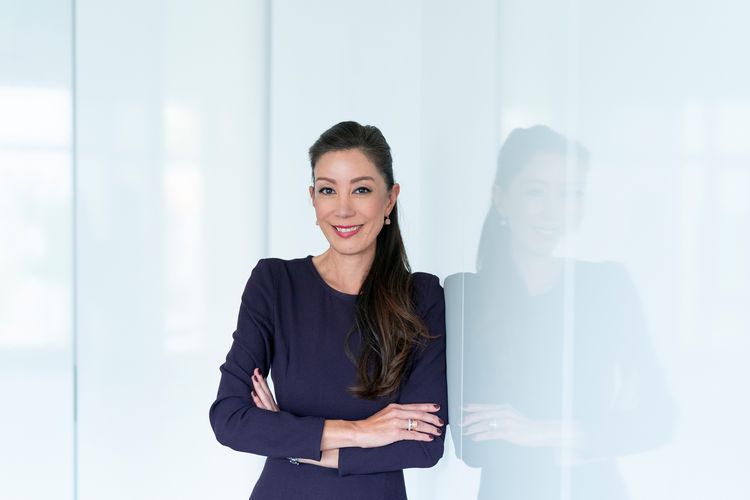
Saori Dubourg, Former Member of the Executive Board, BASF SE"We are in the midst of a paradigm shift towards a resource efficient economy. One that holds enormous opportunity if we think through and further consider the interrelationships between the environment, society and the economy, and responsibly generate value for them at all levels. It is our duty to come up with new tools and rethink the way we steer businesses, putting values at the core of every decision. This essential understanding also forms the basis of the new Mannheim Business School master’s program. The curriculum emphasizes that long-term values are at the heart of sustainable corporate success."
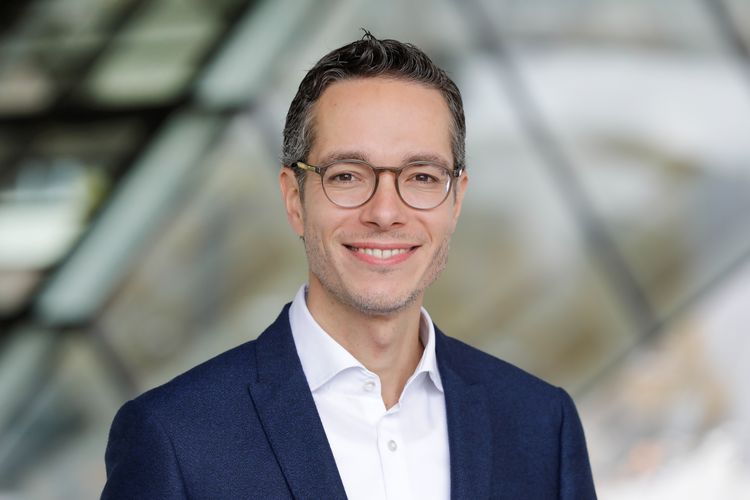
Dr. Sebastian Rudolph, Head of Global Group Communications, Volkswagen AG; Vice President Communications, Sustainability and Politics, Porsche AG"Sustainability and social responsibility have become centrally important, not only in the business world but also at Mannheim Business School, an institution of high standing throughout Europe. The new Mannheim Master in Sustainability and Impact Management is a good example of this. It’s all about creating cross-functional solutions to the new challenges of professional life as well as added value for society at large. Mannheim Business School forges a strong link between academic methodological expertise and sustainable management in practice."
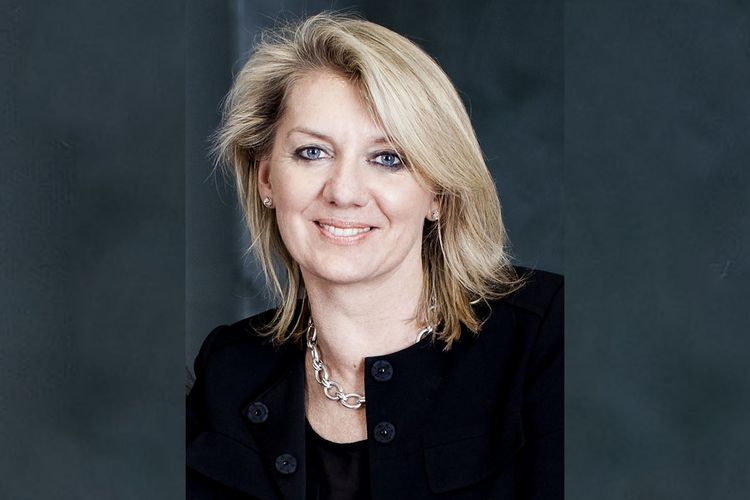
Andrea Pernkopf, Managing Director help alliance, Lufthansa Group"Sustainable management will become a decisive factor for corporate success in all business areas. I see particularly great potential when it comes to employee engagement and involvement. If employees are enabled to identify opportunities for sustainable actions and decision making within their daily jobs, if they are able to get their colleagues and superiors on board, and thus actively promote change towards sustainable future businesses, this is a huge lever and multiplicator for sustainable companies in every sector and industry.
The Mannheim Master in Sustainability and Impact Management provides employees and future executives with the toolkit required to achieve the maximum positive impact in the development of their career and that of their organization."
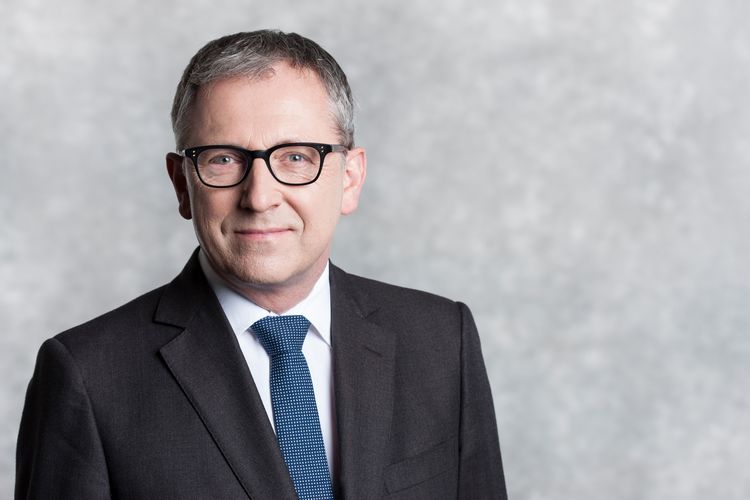
Dr. Peter Kurz, Mayor of Mannheim"We can proudly claim that Mannheim is a worldwide pioneer in its commitment to a more sustainable and just world. This couldn’t be more evident than in the core values of "Mannheim 2030", a mission statement drawn up by more than 2,500 citizens and a large number of local institutions, and based on the United Nations Sustainable Development Goals. This is why I very much welcome the fact that a degree program that consistently focuses on sustainable business has now been launched at Mannheim Business School. It will specifically train young managers to positively influence corporate activities in the future, not only in Mannheim and the surrounding region, but worldwide."
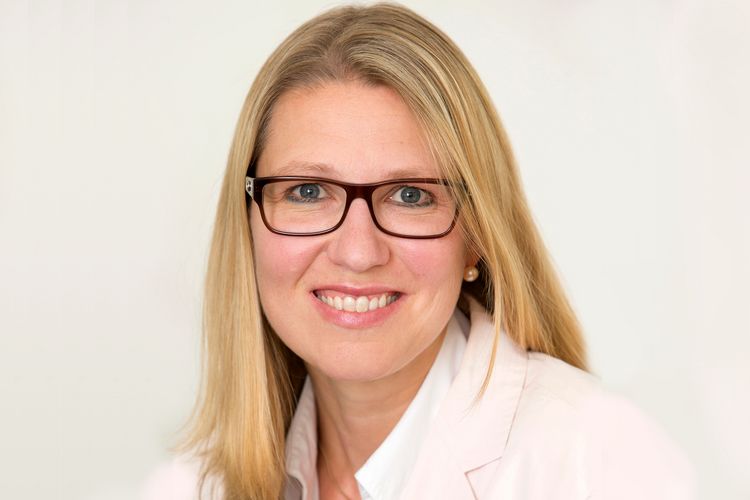
Talke Schaffrannek, Director Circular Economy, BASF SE, Alumna MANNHEIM & TONGJI Executive MBA"In the future, managers will constantly have to make decisions that involve striking a balance between commercial, environmental and social factors. Consequently, there will also be a transition to different structures, value drivers, product portfolios and even business models. We need degree programs that holistically convey knowledge and methods to not only understand such transformation processes, but also actively develop and implement them in practice. The new master’s program at Mannheim Business School is an excellent example of this."
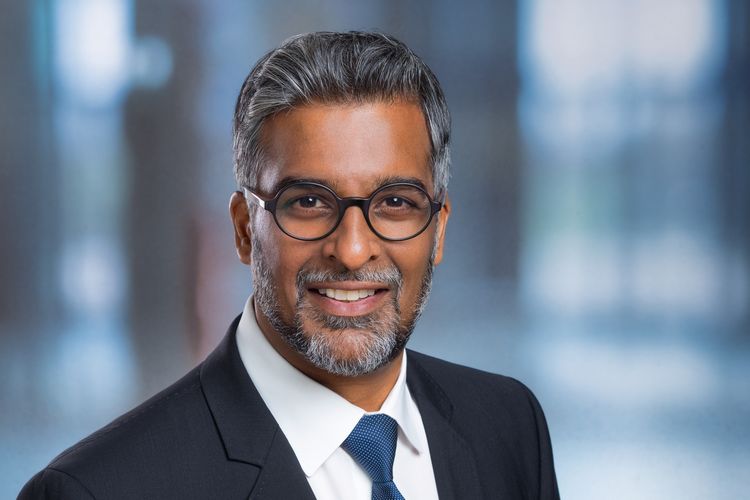
Apurva Gosalia, Consultant, Partner, Hon. Lecturer, Senator Sustainability – Former Chief Sustainability Officer & Vice President Global Intelligence"A smart corporate policy geared toward sustainability will be critical to success in the future. This is no easy task because, on the one hand, the sustainability strategy must be in line with the company’s DNA, while on the other hand, sustainability has a bearing on all functional areas. The curriculum and structure of the new degree program at Mannheim Business School prepares students for these challenges in the best possible manner."
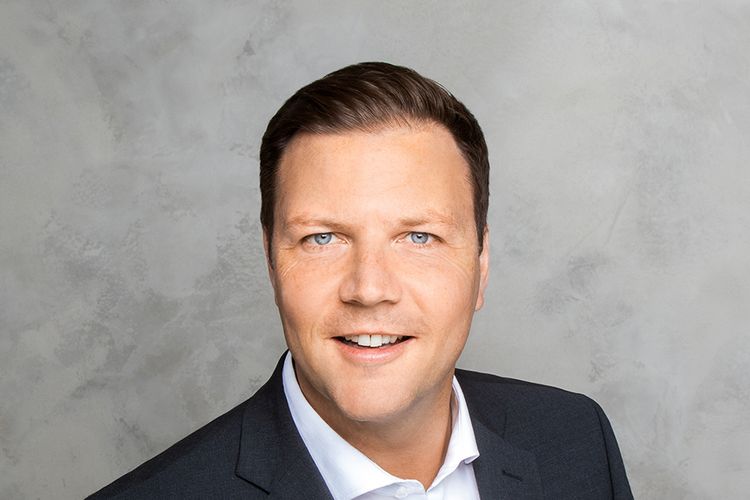
Dr. Volker Proffen, Head of Governmental Affairs, Südzucker Group"Sustainability is not only a societal megatrend, but also a challenge and opportunity for corporations. It affects the way we do business today – and it will determine our business model in future.
Such developments are an opportunity for both companies and their employees. The latest knowledge and skills related to sustainability will be key competencies in a fast-changing business environment."
MANNHEIM BUSINESS SCHOOL (MBS)
Located in the heart of the German and European economy, Mannheim Business School (MBS), the umbrella organization for management education at the University of Mannheim, is considered to be one of the leading institutions of its kind in Germany and is continuously ranked as Germany’s #1.



